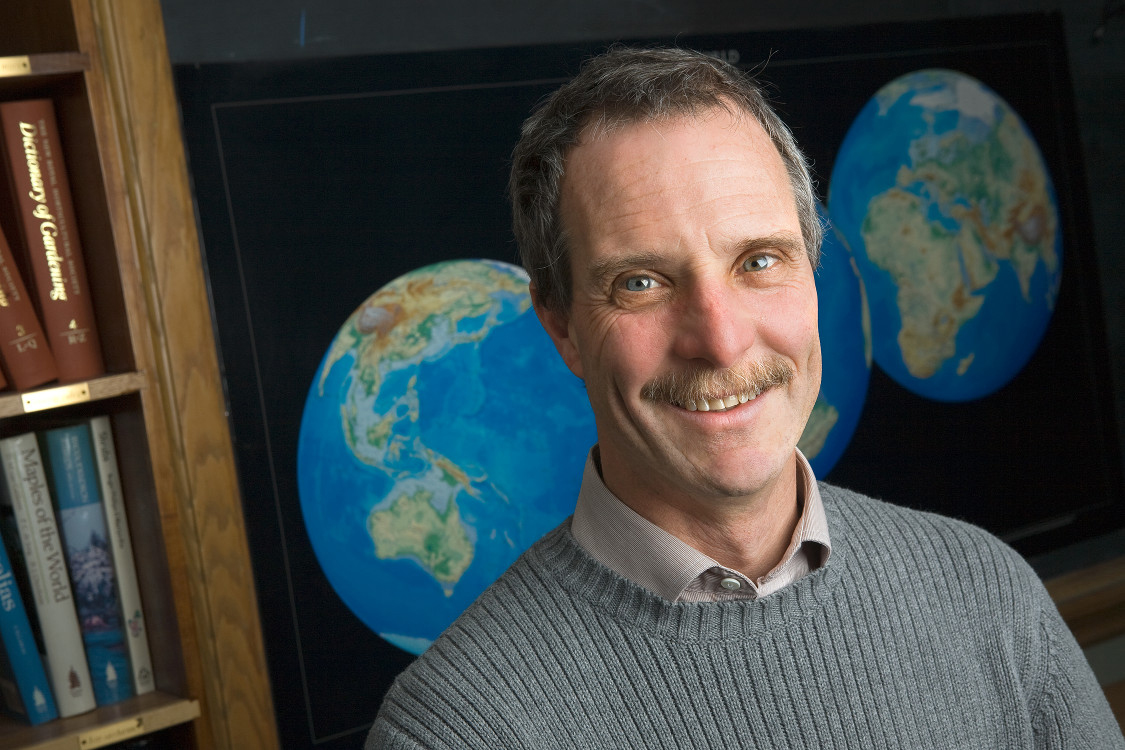Latest climate change information housed on new website
By Matt Hayes
Type “New York climate data” into Google and be prepared for a deluge of nearly 8 million search results. Somewhere in that vast flood may be the relevant information you need, but wading through what’s trivial and out of date can be a frustrating slog requiring time and scientific know-how to navigate.
Now a Cornell partnership at the frontier of climate and information science is making the search for relevant climate information easier and faster. The New York Climate Change Science Clearinghouse features New York-specific climate data curated by Cornell librarians to provide the public and policymakers access to the most recent and credible information available to inform decisions.

Cornell worked with the New York State Energy Research and Development Authority (NYSERDA), the Northeast States for Coordinated Air Use Management (NESCAUM), State University of New York College of Environmental Science and Forestry (ESF), and the federal National Oceanic and Atmospheric Administration (NOAA) to create the website.
Using climate science data from Cornell’s Northeast Regional Climate Center (NRCC) and other sources, the website developed by Huda Khan and Darcy Branchini, both Cornell University Library information technologists based at Albert R. Mann Library, along with others at Cornell and a team from SUNY ESF, NESCAUM and NOAA, brings together multiple technological components to seamlessly merge complex data into a flexible, useable interface.
The project is at once a testament to technological ingenuity and information stewardship. Khan and Branchini took the code used for VIVO, a Cornell-developed system for finding information about researchers working in different areas of study, and repurposed it for a system aimed at finding different sources of climate change data and documents. The website also includes interactive maps and data visualizations developed with the project team. From there, the project’s primary curator, Ingrid Zabel, assembles current research, reports, data and maps, as well as interactive content developed by the project.
The result is a comprehensive, navigable website with New York climate information in a single, digital space. Prior to the introduction of the site, policymakers, businesses, farmers and others in need of current climate science often had to rely on traditional search engines, says Art DeGaetano, NRCC director and professor in the Department of Earth and Atmospheric Sciences.
The information overload forced nonscientists to vet results they had neither the time nor the scientific background to do reliably, a potentially costly scenario when decisions are made using inaccurate information, according to DeGaetano, who along with Mann Library director Mary Ochs is co-principal investigator.
“Before now, these policymakers often trusted whatever old data and old studies they found online. But because climate science is a dynamic process, their deliberations were not as informed as they could be,” says DeGaetano. “Our site will put the most relevant and cutting-edge information into policymakers’ hands.”
Type in “climate adaptation plans,” for example, and the website produces a results page with actual plans from municipalities across New York that can help guide development of local policies. Zoom in on a map of Tompkins County or elsewhere in the state and find a wealth of various data, from flood maps and agricultural zones to local climate change mitigation efforts.
“We are providing the critical filtering step to aid those searching for insights on the New York climate and how it is changing,” says Ochs. “Someone trying to make a decision about things needs the pertinent information, and our site elevates what’s most recent and important. Providing this kind of service is a natural role for librarians who are experts at finding the relevant and authoritative pieces in any information haystack.”
This resource is not just for state planners. DeGaetano envisions everyone from farmers to homeowners finding use for the website as New Yorkers adapt to the reality of a changing climate.
“This can be a guide for someone who is looking to do something but has the deer-in-the-headlights look going and is not quite sure what is necessary to be successful,” says DeGaetano.
The project is sponsored by NYSERDA.
Matt Hayes is managing editor and social media manager for the College of Agriculture and Life Sciences.
Media Contact
Get Cornell news delivered right to your inbox.
Subscribe